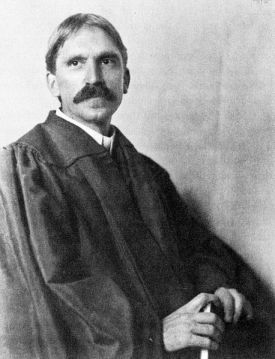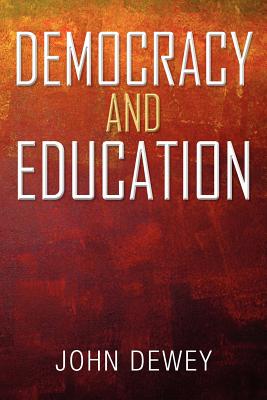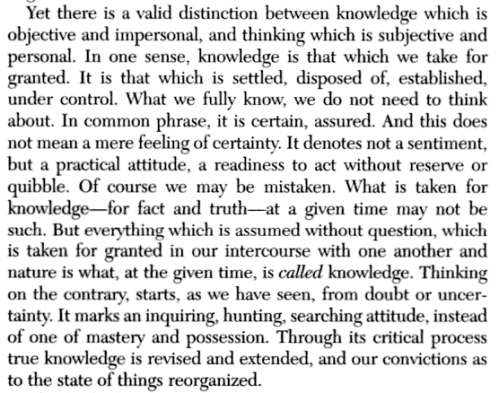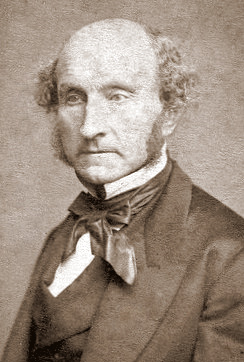
John Dewey: One of the most dangerous men in America
There is a list going around Facebook recently, though the list is quite old published in 2005, of the top 10 most harmful books of the 19th and 20th centuries from a conservative perspective. Many of the books listed are quite predictable, since anything that challenges capitalism or Christianity is an immediate candidate. But one book that made the top 5 kind of surprised me. There sitting at #5 is John Dewey’s Democracy and Education. I mean this book is at #5, it ranks as more harmful than Marx’s Das Kapital (#6) and Nietzsche’s Beyond Good and Evil, where he proclaims that God is Dead (#9). Darwin’s The Origin of the Species and The Decent of Man don’t even make the list (though they get honourable mention). What on earth could be so dangerous about Democracy and Education? Well, lets see what they say:
In Democracy and Education, in pompous and opaque prose, he disparaged schooling that focused on traditional character development and endowing children with hard knowledge, and encouraged the teaching of thinking “skills” instead. His views had great influence on the direction of American education–particularly in public schools–and helped nurture the Clinton generation. (Source: Human Events: Powerful Conservative Voices)
So thinking skills are threatening? I find this passage odd because “hard knowledge” itself comes from the exercise of thinking skills. Dewey does not actually argue against teaching knowledge in Democracy and Education. Instead he argues that while teaching knowledge is important, this ought to be done in the context of examining and questioning the knowledge that is being taught so that students will learn how to create new knowledge and advance our understanding. There would be no new scientific, mathematical, engineering, or other advances in knowledge without exercising thinking skills. If Einstein had not been curious about physics and spent his time thinking while working in the patent office, then we would still be stuck with only Newtonian physics. In fact, we wouldn’t even have Newtonian physics, since his ideas about gravity and so on were derived from his thinking about apples falling to earth. Dewey on this point:

Dewey notes that knowledge is subordinate to thinking because knowledge cannot progress without thinking. From Democracy and Education, page 146.

Dewey’s Democracy and Education: The 5th most harmful book of the 19th and 2th centuries
Second, it is strange to admit that teaching thinking skills leads to voting democratic. Surely if one’s views were worth their salt they should be able to withstand critical scrutiny.
Third, it is frightening to see how this kind of fear of critical thinking finds its way into official Republican policy only a few years later. In the 2012 election season the Republican party of Texas included the following in their educational platform:
Knowledge-Based Education – We oppose the teaching of Higher Order Thinking Skills (HOTS) (values clarification), critical thinking skills and similar programs that are simply a relabeling of Outcome-Based Education (OBE) (mastery learning) which focus on behavior modification and have the purpose of challenging the student’s fixed beliefs and undermining parental authority. (Source: The Washington Post)
Of course, it is important to note that the undermining of parental authority does not follow from the development of critical thinking skills that challenge students’ fixed beliefs. For that to follow you would have to make explicit the premise that parental teachings are of a kind that cannot withstand critical scrutiny. If one were truly certain of the knowledge one was imparting to one’s offspring, then one would have no fear of their critical questioning, since the critical examination of true beliefs merely leads one to understand their truth more deeply.
But finally, one of the things that I find most odd about the inclusion of Democracy in Education among the top-five most harmful books is that the very distinction between knowledge and thinking that these conservative fears are based on is a distinction that they seem to be getting from the very work they are afraid of. Here is Dewey’s description of this distinction:

Dewey Describes knowledge as that which is settled and known, that which is certain, while thinking arises from doubt, questioning, and the unknown. Thinking can also expose false knowledge, according to Dewey. From Democracy and Education page 283.
It seems strange to me to invoke a distinction introduced in a philosophical work in order to describe why that work is harmful when one clearly agrees with the distinction introduced therein. One of the means of evaluating whether philosophy is good or bad as philosophy is on the basis of the distinctions introduced by the philosopher because introducing and elucidating distinctions is part of the work of philosophy. The fear of Dewey’s work seems to have a tension in it because they seem to agree that the distinction between knowledge and thinking is a worthwhile and important distinction (therefore it is good philosophy) but then think that introducing the distinction is harmful because it might encourage thinking which would challenge children to examine their beliefs to discover whether what they have taken to be knowledge (what has been ‘called knowledge’ as Dewey puts it) really deserves the label.
I guess Hannah Arendt was right when she wrote:
There are no dangerous thoughts;
Thinking itself is dangerous (See Discussion on SciForums)
And just for fun, Stephen Colbert’s take on the Texas GOP’s position against thinking: for those in the USA, you can find the clip at this link. For those of you in Canada, you cannot find the clip because the Comedy Network’s website sucks, contrary to what their commercials claim.
Read Full Post »






